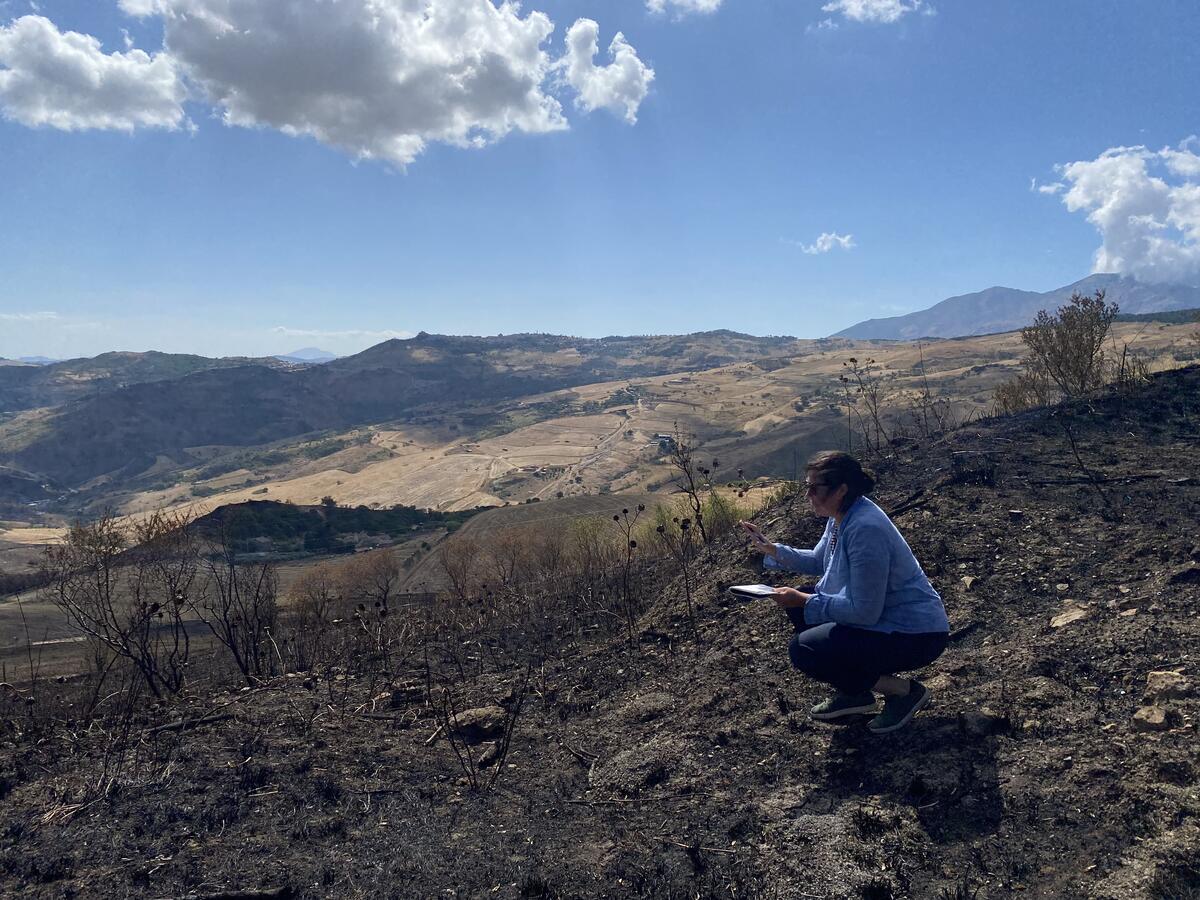UC Berkeley Study Uncovers the Mafia’s Role in Italy’s Wildfire Crisis

Over the past few years, raging wildfires in Italy have become a common and deadly occurrence. In Southern Italy, intense, record-breaking heat waves and dry scirocco winds create the perfect conditions for wildfires—both natural and coordinated.
In the paper “Land on fire: The spatial production of the mafia,” published in a special issue of New Geographies of Organised Crime, UC Berkeley Ph.D. candidate Lauren Pearson links this surge in wildfire outbreaks to the weaponization of fire by the Sicilian Mafia. In examining this idea, Pearson’s study bridges a major gap between geography and criminology.
Sicily experiences over 8,000 wildfires every year. Over 70% of those wildfires are arsons tied to vendettas, land disputes, protests, and now, the weaponization of fire by the mafia, according to the study. These wildfires have burned over 120,000 acres of vegetation and forced thousands of people to evacuate from their homes.
The impact of these attacks is far-reaching. Given that most wildfires occur in places with a strong mafia presence, Pearson’s research aims to uncover the connection between organized crime and the wildfire crisis.
“My overall question is, why is this happening?” asked Pearson. “None of the answers have been satisfactory. That’s the impetus for my research.”
Historically, the evolution of the mafia has coincided with capitalist developments such as globalization or economic crises. This paper proposes that the phenomenon of illegally set wildfires in Sicily reflects an emerging transformation in the mafia’s organizational structure.
“The dynamic of the Sicilian mafia is changing within this particular moment of climate change,” Pearson said. “They’re taking advantage of fire similar to how they might have weaponized postwar transitions or transitions to more urban environments.”
Pearson said this transformation is not an isolated event, but rather a continuation of recurring historical and geographical processes. In identifying and exploring the implications of this pattern, she seeks to reorient our understanding of mafia crime.
“Political, economic and societal issues are part of the dialect that keeps producing mafia space,” Pearson said. “Fire is a new iteration of how the mafia reproduces themselves and reproduces their landscapes anew.”
Pearson employs ethnography and the 20th century French philosopher and sociologist Henry Lefebvre’s theory on the production of space, or space as a dynamic part of society rather than a neutral background, in order to situate the mafia’s fire-setting within the context of its historical, material and geographical circumstances.
“The theory on the production of space can hold societal issues, political economic issues, social issues and cultural issues,” said Pearson. “It’s a way to understand how space and mafia space in particular are produced.”
By framing the intentional setting of fire as a manifestation of changing social and spatial structures of the mafia, Pearson addressed not just the environmental reasons, but also the political, economic and social reasons behind the wildfire crisis in Southern Italy.
In investigating how landscapes are being produced for profit by particular actors, Pearson created a framework through which we can confront pressing environmental issues. Despite the widespread devastation climate change has caused in communities worldwide, government responses to environmental disasters remain largely unchanged.
“In the E.U., I want this to influence European wildfire policy in the southern Mediterranean,” said Pearson. “In the U.S., I hope to have an impact on the way we understand the peculiarities of climate change.”
Growing up in the Bay Area, Pearson witnessed the deadly 1991 firestorm that killed 25 people and destroyed over 3,000 homes in the Oakland Hills. Californians are well-accustomed to the plumes of smoke and apocalyptic skies that are accompanied by every fire season, and having lived under that lingering threat, Pearson understood all too well the consequences of climate change.
To impact wildfire policy, Pearson coalesced her different fields of studies to craft a research topic that is not only meaningful to her, but that tackles a pressing issue: the Sicilian Mafia’s operationalization of rural and urban spaces through arson.
